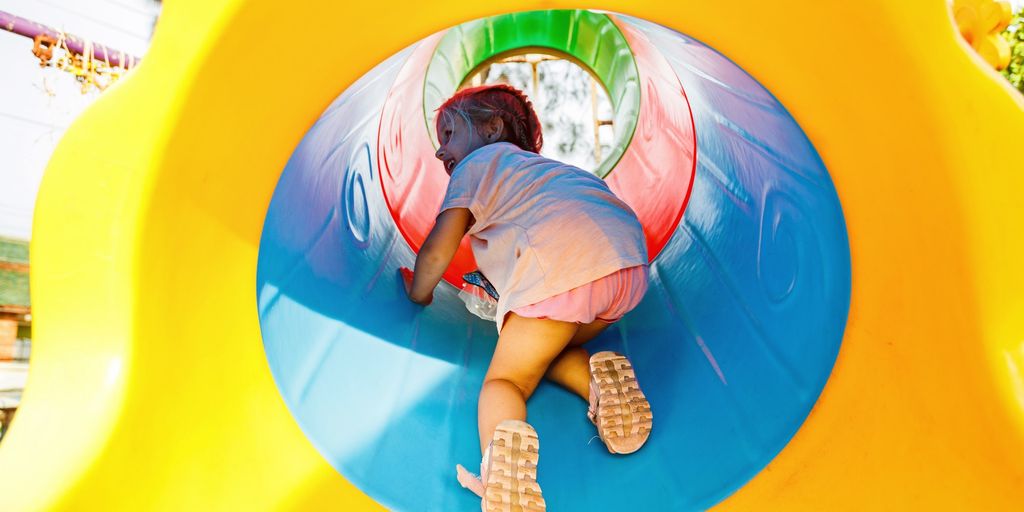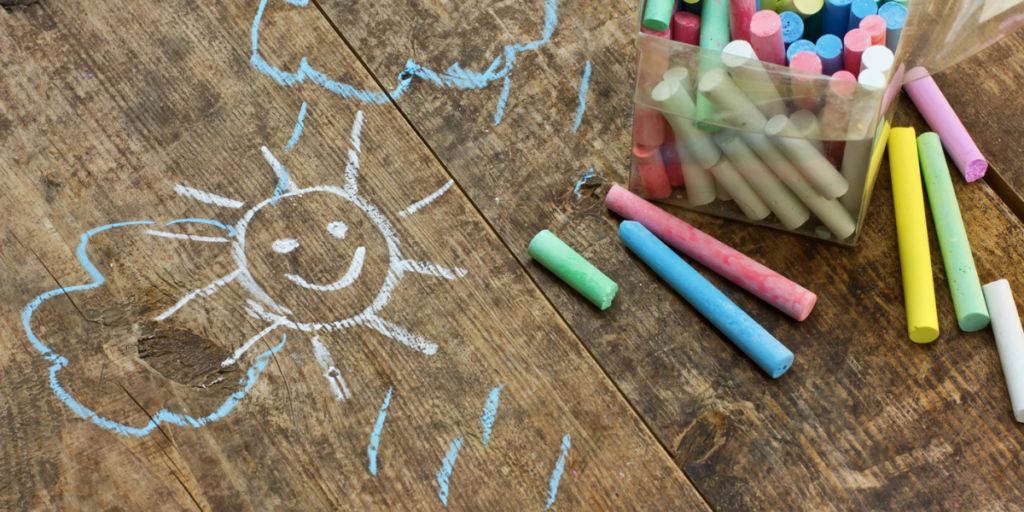
Play isn’t just a fun activity for kids; it’s a crucial part of their growth. The United Nations High Commission on Human Rights even says it’s a fundamental right for every child. Through play, kids learn, grow, and develop in ways that help them become happy and well-rounded adults.
Key Takeaways
- Play helps kids solve problems and think creatively.
- Physical play keeps children fit and helps them grow strong.
- Playing with others teaches kids how to communicate and work together.
- Through play, children learn to handle their emotions and build self-esteem.
- Unstructured play encourages kids to be independent and imaginative.
The Role of Play in Cognitive Development
Enhancing Problem-Solving Skills
Play significantly boosts cognitive growth. When children engage in play, they learn to solve problems and make decisions. This helps them develop critical thinking skills. For example, building a tower with blocks requires planning and figuring out how to keep it from falling. These activities are crucial for cognitive development.
Boosting Creativity and Imagination
Play is an exceptional vehicle for cognitive growth. It offers a fertile ground where young minds can flourish. Through imaginative play, children create stories and scenarios, which helps them think creatively. They might pretend to be astronauts exploring space or chefs cooking a meal. This kind of play allows them to use their imagination and come up with new ideas.
Improving Memory and Concentration
Playing games that require following rules or remembering sequences can improve a child’s memory and concentration. For instance, games like "Simon Says" or memory card games challenge children to remember instructions and pay attention. This not only makes their memory stronger but also helps them focus better on tasks.
Play is not just fun; it’s a powerful tool for learning. It helps children develop skills that are essential for their academic success in the future.
Physical Benefits of Play for Child Development
Promoting Physical Fitness
Engaging in active play, like tag or kickball, helps children improve their cardiovascular health, strength, and flexibility. Regular physical play is essential for developing good habits that can last into adulthood. It also helps counteract issues like childhood obesity by keeping kids active and moving.
Developing Motor Skills
When children play, they are strengthening important muscles and developing critical skills. Activities like climbing, running, and jumping enhance both fine and gross motor skills. This kind of play is crucial for their overall physical development.
Encouraging Healthy Growth
Play is not just fun; it also supports healthy growth. Regular movement and physical activities contribute to the holistic development of children, impacting their social, emotional, physical, and cognitive growth. This well-rounded development is vital for their future well-being.
Play is essential to development because it contributes to the cognitive, physical, social, and emotional well-being of children and youth.
Social Skills Fostered Through Play
Building Communication Skills
Playtime is a great way for kids to learn how to talk and listen to others. When they play games like tag or hide-and-seek, they have to talk to each other to make the game work. This helps them understand how to share ideas and listen to what others have to say. Good communication is a skill they will use for the rest of their lives.
Learning Cooperation and Teamwork
When kids play together, they learn how to work as a team. Whether it’s building a fort or playing a game, they have to figure out how to get along and share tasks. This teaches them the importance of cooperation and how to solve problems together. They also learn to respect rules and understand the concept of fairness.
Understanding Social Norms
Playing with others helps kids learn what is okay and what is not okay in social situations. They see how their actions affect others and learn to adjust their behavior. This is important for understanding social norms and building relationships. They also learn about empathy and how to be kind to others.
Play is not just fun; it’s a way for kids to learn important life skills. Through play, they practice how to communicate, cooperate, and understand social norms. These skills are essential for their future success.
Emotional Growth Through Play
Developing Emotional Resilience
Play allows children to explore their feelings and emotions. Through play, they can act out different scenarios, experiment with new behaviors, and work through difficult emotions. This can be especially helpful for children struggling with emotional difficulties or who have experienced a traumatic event.
Expressing and Managing Emotions
Physical fun such as free play during recess helps develop children’s motor skills, prevent childhood obesity and build emotional intelligence. The gentle thrill of a playground slide, for example, lets a child build confidence as they take risks in a relatively safe environment. Games such as duck-duck-goose and tag also help children build other socio-emotional skills such as empathy as children learn to be careful not to hurt others by tapping someone too hard, for example.
Building Self-Esteem
With this definition in mind, it’s easy to recognize play’s potential benefits. Play nurtures relationships with oneself and others. It relieves stress and increases happiness. It builds feelings of empathy, creativity, and collaboration. It supports the growth of sturdiness and grit. When children are deprived of opportunities for play, their development can be significantly impaired.
The Impact of Play on Brain Development
Stimulating Neural Connections
Play is a crucial part of early childhood development. It helps build strong, flexible brains and lays the foundation for future learning. When children engage in play, they stimulate neural connections, which are essential for brain growth. Active experiences during playtime are particularly beneficial for developing these connections.
Enhancing Cognitive Flexibility
Through play, children learn to adapt to new situations and think creatively. This enhances their cognitive flexibility, allowing them to solve problems more effectively. Whether it’s a game of make-believe or a puzzle, play encourages kids to think outside the box and come up with innovative solutions.
Supporting Executive Function
Executive function skills, such as planning, attention, and self-control, are also developed through play. These skills are vital for academic success and everyday life. By engaging in various types of play, children practice and improve their ability to focus, follow rules, and manage their emotions.
Play is not just a fun activity; it’s a powerful tool for brain development. It helps children build the skills they need to succeed in school and life.
The Importance of Unstructured Play
Fostering Independence
Unstructured play is more about the journey than the destination. It allows children to explore new ideas and figure out how to solve problems independently. This type of play is crucial for children’s development, as it lets them pursue their own interests and activities. Children learn to make decisions and take initiative without adult guidance, which builds their confidence and independence.
Encouraging Creativity
During unstructured play, children can use their imaginations and creativity. They might build a fort out of blankets, create a make-believe world, or invent a new game. These activities spark the imagination and encourage children to explore and engage their creative sides. Unstructured play doesn’t just benefit social-emotional development; it plays a vital role in cognitive development as well.
Allowing for Spontaneity
Unstructured playtime is a chance for kids to be spontaneous and follow their curiosity. They can switch from one activity to another, depending on what catches their interest. This freedom helps them develop flexibility and adaptability, important skills for their future. Unstructured play can be enjoyed both indoors and outdoors, from building sandcastles on the beach to hiking through the woods.
Unstructured play is a time for you to put your “teacher” hat aside and allow your child to do it their way. It’s okay if they call a horse a cow. Make-believe is a vital part of childhood.
Parental Involvement in Play

Strengthening Parent-Child Bonds
When parents play with their children, it allows moms and dads to relive the joys of their childhood. Parents report playing as being recharging and refreshing. Parents who play with their children become more attentive to their child’s nonverbal behavior and develop a better understanding of a child’s sense of humor, creativity, and personality. Engaging in play improves communication skills between parents and their kids, and it promotes bonding. Playing also improves relationships among siblings.
Modeling Positive Behaviors
Parents’ participation influences children’s positive behavior, increases cognitive achievement, and affects emotional growth in young learners. Active involvement in play allows parents to model positive behaviors, such as sharing, empathy, and patience. Children learn by observing and imitating their parents, making it crucial for parents to demonstrate these behaviors during playtime.
Creating Safe Play Environments
Creating a safe play environment is essential for children to explore and learn. Parents should ensure that the play area is free from hazards and provide age-appropriate toys and materials. A safe environment encourages children to take risks and try new things, which is vital for their development. Additionally, parents should supervise playtime to prevent accidents and intervene when necessary to guide their child’s play in a positive direction.
Play is not merely a break from learning; it is an essential component of it. Children, with their boundless energy and curiosity, thrive in environments where they can play freely and safely.
Conclusion
Play is not just a fun activity; it is a crucial part of growing up. It helps kids learn about themselves and the world around them. Through play, children develop important skills like problem-solving, teamwork, and creativity. It also helps them stay healthy and happy. By making time for play, parents and caregivers can support their child’s overall development. So, let’s remember to encourage play every day, because it truly is the work of childhood.
Frequently Asked Questions
Why is play important for a child’s development?
Play is essential because it helps kids learn, grow, and develop in ways that can’t happen in other settings. It supports their cognitive, physical, social, and emotional well-being.
How does play boost cognitive development?
Play enhances problem-solving skills, boosts creativity, and improves memory and concentration. It helps kids think and learn better.
What are the physical benefits of play?
Play promotes physical fitness, helps develop motor skills, and encourages healthy growth. It keeps kids active and strong.
How does play help with social skills?
Through play, kids learn to communicate, cooperate, and understand social norms. It teaches them how to interact with others.
Can play affect a child’s emotional growth?
Yes, play helps kids develop emotional resilience, express and manage their emotions, and build self-esteem. It makes them emotionally stronger.
Why is unstructured play important?
Unstructured play fosters independence, encourages creativity, and allows for spontaneity. It lets kids explore and learn on their own.






